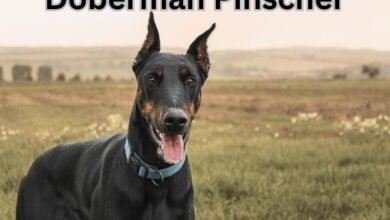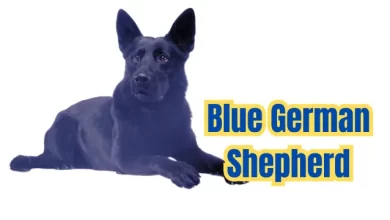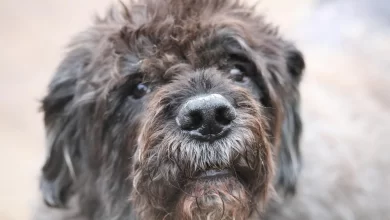
In the world of delightful sweets, the snickerdoodle holds a special place. This classic American cookie is characterized by its soft, chewy texture and a distinctive coating of cinnamon sugar. Made primarily from flour, butter, sugar, and eggs, snickerdoodles are leavened with baking soda and cream of tartar, which gives them their iconic tangy flavor and puffy texture. The origin of the snickerdoodle is somewhat mysterious, with theories suggesting it could have German roots or simply be the product of creative American baking.
The hallmark of the snickerdoodle is its cinnamon-sugar crust, which is achieved by rolling balls of dough in a mixture of cinnamon and sugar before baking. This not only adds a sweet and spicy flavor but also a slightly crispy texture to the outside, contrasting beautifully with the soft interior. Whether enjoyed with a glass of milk, a cup of coffee, or as a base for more elaborate desserts, snickerdoodles have cemented their status as a beloved treat across generations.
The Rise of “Snickerdoodle Dogs”
Now, onto a sweeter, albeit furrier, variant: “Snickerdoodle Dogs.” This affectionate nickname doesn’t refer to a specific breed but rather to dogs with coats that resemble the light, cinnamon-sprinkled appearance of the snickerdoodle cookie. These dogs usually have a creamy base coat with spots or patches of light brown, much like the cinnamon topping of the cookie. The term is most commonly associated with breeds known for their curly, fluffy coats, such as Goldendoodles (a mix between a Golden Retriever and a Poodle) or Labradoodles (a Labrador Retriever and Poodle mix), though it can apply to any dog sporting the characteristic colors.
How Do Dogs Get the Name “Snickerdoodle Dogs”?
The naming of “Snickerdoodle Dogs” is purely based on their resemblance to the cookie, with no official breed or lineage defining this term. It’s a term of endearment used by dog lovers to describe pets whose fur patterns and colors remind them of the sugary treat. The playful name captures the sweetness and adorability of these dogs, making it a perfect fit for pets that bring as much joy and comfort as their namesake dessert.
Breeders and pet owners might use the term “Snickerdoodle Dog” in informal settings or marketing to highlight the unique appeal of these animals, especially when the dogs’ coats have the distinctive snickerdoodle coloring. It’s a creative and cute way to describe pets, enhancing their charm and potentially making them more appealing to prospective pet parents.
What kind of dog is a Snickerdoodle?
The term “Snickerdoodle Dog” charmingly refers to any dog whose coat mimics the color and texture of the beloved snickerdoodle cookie. This nickname isn’t breed-specific; instead, it celebrates the unique appearance of dogs with a creamy, light base fur sprinkled with cinnamon or light brown spots, much like the cookie’s sugary topping.
While “Snickerdoodle Dog” can apply to a variety of dogs with these coat characteristics, it’s often affectionately used to describe doodle mixes due to their fluffy, curly coats that closely resemble the cookie’s texture. Among the breeds most commonly associated with this endearing term are:
- Goldendoodles: A hybrid between a Golden Retriever and a Poodle, known for their intelligent, friendly nature and hypoallergenic coats.
- Labradoodles: A crossbreed of a Labrador Retriever and a Poodle, celebrated for their loyalty, intelligence, and low-shedding fur.
The term “Snickerdoodle Dog” serves as a sweet nod to the dogs’ delightful resemblance to the cookie, capturing the warmth and joy these furry friends bring into our lives.
What is the personality of a Snickerdoodle dog?
The personality and temperament of a “Snickerdoodle Dog,” particularly if we’re discussing dogs like Schnoodles (a mix between a Schnauzer and a Poodle) which closely fit into the endearing nickname due to their appearance and charming qualities, are known for their delightful blend of characteristics that make them excellent companions. Here’s a breakdown of the Schnoodle’s personality traits:
- Friendly: Schnoodles are known for their amiable nature, often getting along well with both humans and other animals. This makes them great family pets and sociable companions.
- Intelligent: Both Poodles and Schnauzers rank high in intelligence among dog breeds, and Schnoodles inherit this trait. They are quick learners and can excel in obedience training, agility, and problem-solving activities.
- Playful: With a zest for life and energy to spare, Schnoodles love to play. Whether it’s a game of fetch, a run in the park, or puzzle toys, they’re always up for some fun.
- Loyal: Loyalty is a hallmark of the Schnoodle’s temperament. They form strong bonds with their family members and often become particularly attached to one person, showing great devotion and affection.
- Good with children and other pets: Their friendly and gentle nature makes Schnoodles good companions for children. They are also typically good with other pets, including dogs and cats, especially if socialized from a young age.
- Vocal: Schnoodles can be vocal, a trait they may inherit more from the Schnauzer side. While they make excellent watchdogs, alerting you to anything unusual, they can tend to bark more than some other breeds. However, with proper training and socialization from an early age, excessive barking can be managed effectively.
Given these traits, Schnoodles, or any dog affectionately dubbed a “Snickerdoodle Dog” due to their coat and sweet demeanor, can be wonderful pets. They thrive in environments where they can be part of the family activities, receive mental stimulation, and have regular opportunities for play and exercise. Proper training and socialization play crucial roles in bringing out the best in their personalities, ensuring they grow into well-adjusted, happy, and loving companions.
Conclusion
While “Snickerdoodle Dogs” may not be an official category in the canine world, the term endearingly captures the essence of certain dogs’ appearance with a nod to a beloved cookie. Just as snickerdoodles have a sweet, comforting quality, dogs likened to these treats often share the same warmth and affection, making them treasured companions in many households. Whether it’s through their comforting presence or their snickerdoodle-like coats, these dogs have a special way of spreading joy, much like the cookie that inspired their nickname.



